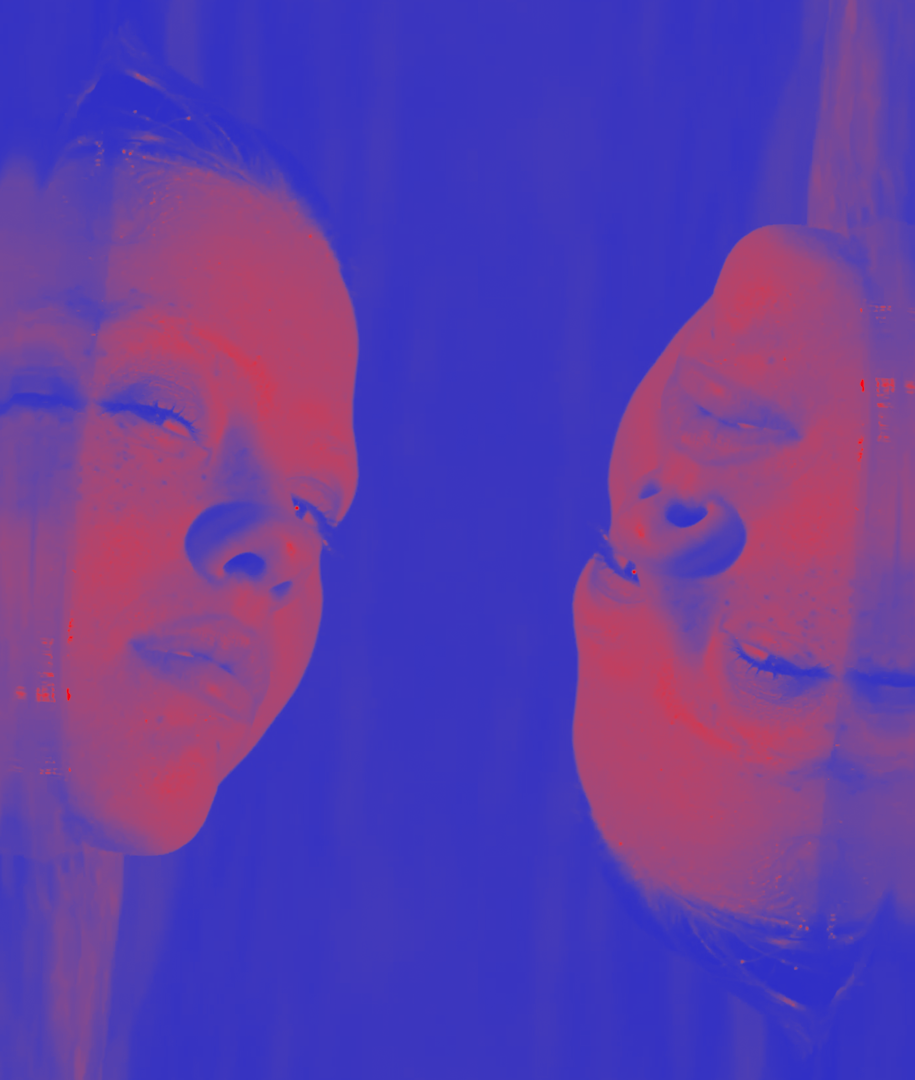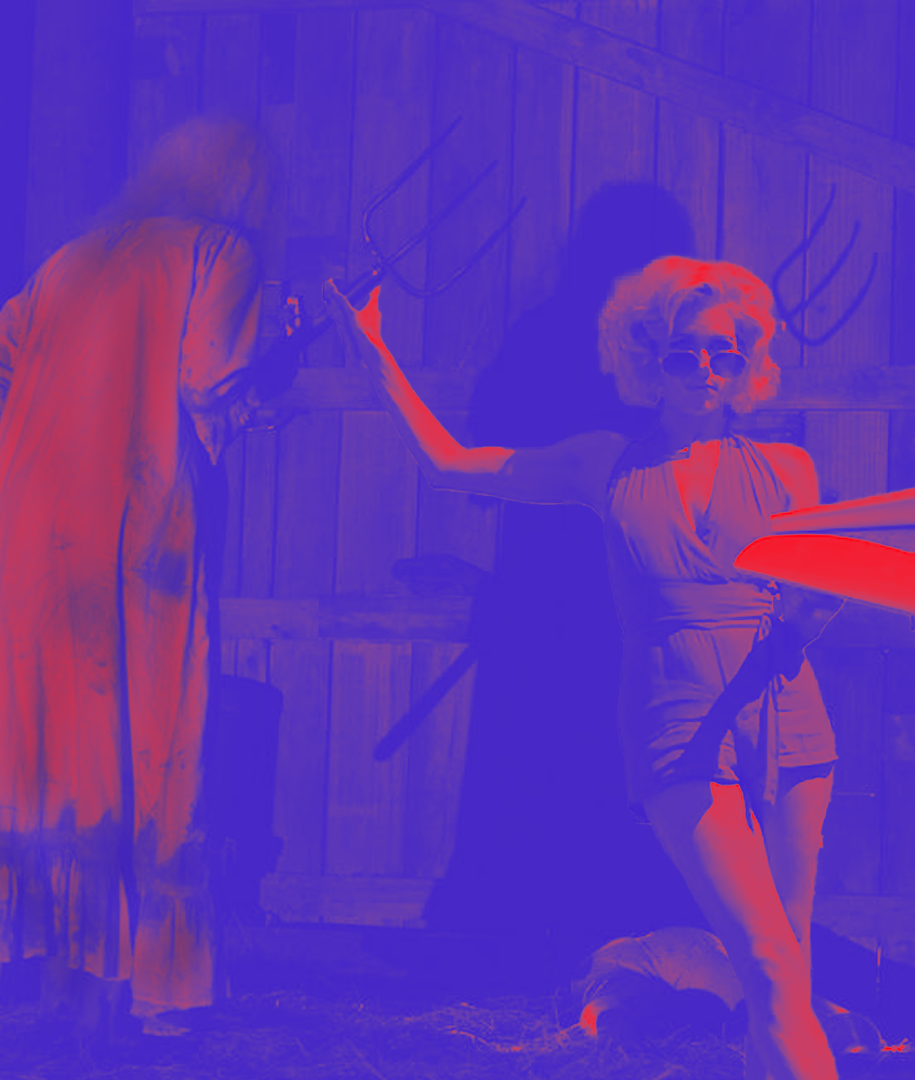X Looks at Desire with Joy, Longing and Terror
The discourse around sex scenes in cinema feels inescapable. Whenever a film comes out that explores desire, certain corners of Twitter will inevitably blow up on whether sex scenes are “necessary,” or if they just exist to provide some kind of titillation for the audience. This - seemingly endless - moment of uncertainty about exploring sex and sexuality on-screen feels linked to current cinematic monolith: superhero movies. Two hours of spectacle featuring actors in impossible physical shape as they fight and shoot and blast their way towards saving the world. But their bodies, relationships, and desires all feel cold and sterile; whether it’s the seeming lack of chemistry between Tom Holland and Zendaya in the Spider-Man films, or the utterly sexless relationship that never quite develops between Bruce Banner and the Black Widow in Age of Ultron.
Mainstream cinema has a lot of body problems; from the homogeny of body types on screen, to the fact that neither films nor audiences seem to know what to do with those bodies once they’re in front of the camera.
Enter Ti West’s X, a 70s set slasher - that isn’t really that much of a slasher - about a ragtag group of people who are setting out to make what they hope to be a “good” dirty movie, just on the cusp of the home video boom that saw porn as a genre move from cinemas to homes. X is set in 1979, the end of a decade that saw porn find success with both audiences and critics, in Wakefield Poole’s 1971 Boys in the Sand, and the straight breakthrough of adult film in Deep Throat one year later. So when the characters in X set out to shoot “The Farmer’s Daughters,” its fascinating that director RJ (Owen Campbell) keeps insisting that the film they’re making should have serious artistic aspirations; he makes reference to European avant-garde filmmaking, and even tries to get the crew to toast to “the power of independent cinema.”
While its tempting to look at X purely through the prism of online discourse around sex in cinema, what it really does is explore desire in a nuanced, complicated way that’s uniquely cinematic. The presence of “The Farmer’s Daughters,” and the throwback, detail-oriented way in which West films it, makes it clear that cinematic sex, and desire on screen, is far more complicated than a question of “necessity.” By bringing together porn and horror, young bodies on camera and older ones that watch them, X reveals itself to be obsessed with the layers of looking: the voyeurism and projection of the camera alongside looking back on times and desires gone by.
At the heart of these tensions is Mia Goth, who plays both adult-film-star-to-be Maxine, and - as revealed in the credits - the elderly Pearl, who feels drawn to the bodies of the young people making “The Farmer’s Daughter” in the farmhouse on her property. When Pearl sees Maxine filming a sex scene through the window, the film constantly cuts between Maxine and Pearl in the same sexual position; the latter projection her desires onto the body of the former.
In X, desire is complicated; existing somewhere between wanting to be with someone and wanting to be them. When Maxine goes into Pearl’s house, the camera lingers on the two of them side-by-side looking in the mirror, reflections staring back, as if to chart a course from one to the other, what happens when the body changes, but desire remains. Showing Maxine pictures of her past, Pearl says “I was young once,” and reminds Maxine of what she calls the “power of beauty.”
“X reveals itself to be obsessed with the layers of looking: the voyeurism and projection of the camera alongside looking back on times and desires gone by.”
The relationship between Pearl and her husband Howard (Stephen Ure) is at the dark heart of X. The gulf between what their minds desire and what they consider their bodies to be capable of creates the gulf between them and the crew of “The Farmer’s Daughters,” laid out in blunt terms by Bobby-Lynne (Brittany Snow): “One day, we're gonna be too old to fuck.” And while it seems that Pearl and Howard are at this point - the younger men talk about Howard’s sexual impotence, and when he leers at Maxine, ask if it's "been a while since you’ve seen anything that nice” - X is still able to explore the remnants of their desire for one another with a kind of twisted earnestness.
Even amidst the two of them slaying these would-be-pornographers, the film gives them a moment of both physical and emotional intimacy, with Pearl asking her husband to make her “feel young again,” and he insists that even though she’s aged, she’s still the most beautiful woman that he’s ever seen.
One of the killings in X captures these intersections between desire, voyeurism, and violence that makes the film work, as Wayne (Martin Henderson) meets his end by being stabbed in the eyes with a pitchfork, adding a new, violent dimension to how the film explores the intersections between horror and porn. The power of X comes from the fact that it takes both of these genre touchstones seriously; its porn setup allows it to capture something unique about the ways in which people relate to their own bodies and desire. That Maxine insists, like a mantra “I will not accept a life that I do not deserve,” and it’s echoed by Pearl captures the strange similarity that exists between them; Pearl even insists to her, “We’re the same.”
There’s a temptation to look at X purely on its visceral, surface level; the film even flirts with this by having Wayne say “That’s enough gabbing, let’s give the people what they came to see,” but even as its moves towards its bloodstained final act, it never loses sight of what animates the film: the power of desire, and the ways in which people try to hold onto both wanting, and being wanted.
The slashers that defined the late of the 70s and the 80s, just after X’s period setting, are so often defined by a kind of puritanical approach to desire. And as much as both Pearl and Howard use the evangelical language of sin, X stills shows that their relationship to desire and sexuality - as they feel it, remember it, and see it reflected through the camera of pornography, something that echoes through not only their own lives, but also through the cinematic landscape that is still trying to understand the ways in which desire works, both on screen and off.
Words: Sam Moore


